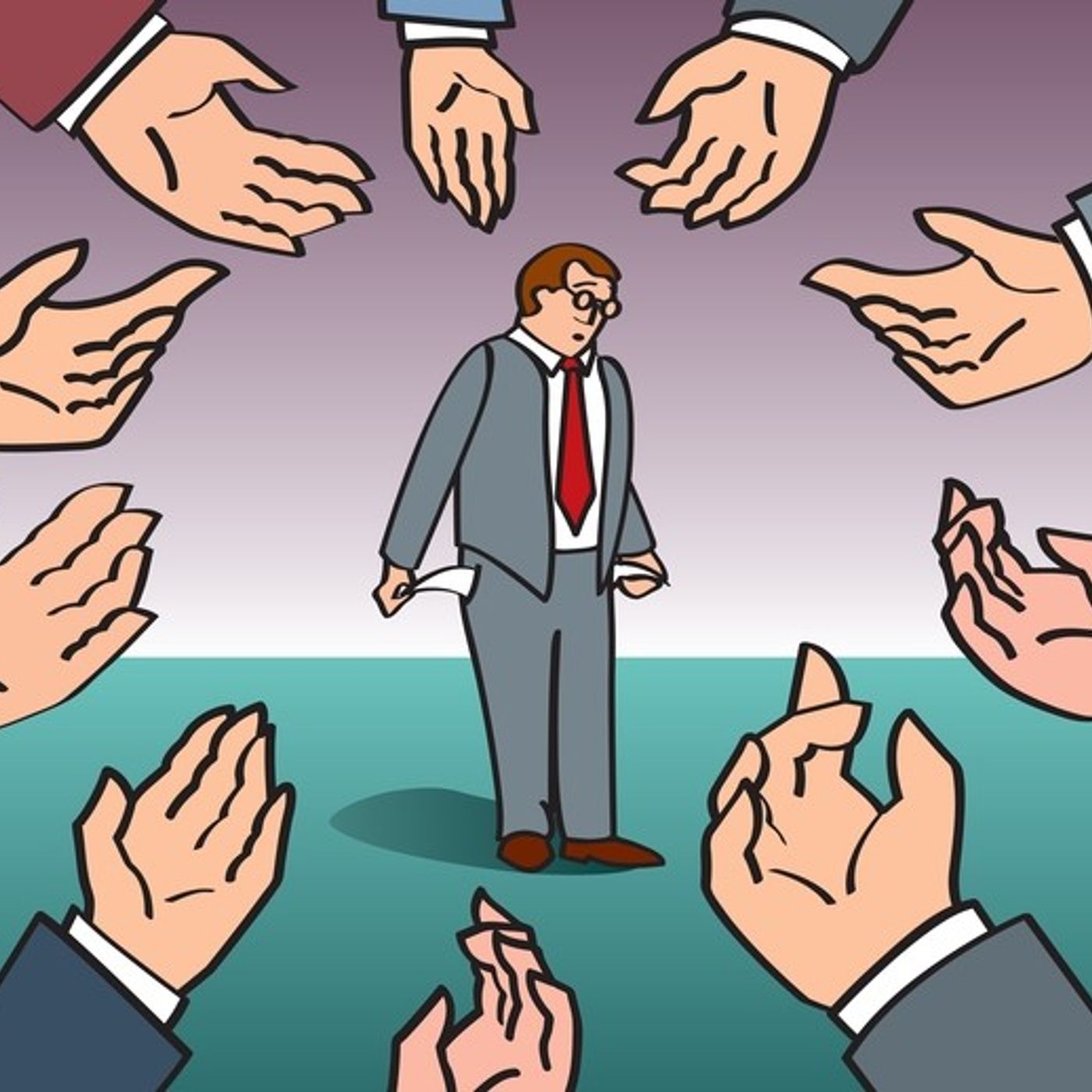
🎤 PODCAST • 1-Groveling 2-Procrastination 1-I feel I have to please others 2-How can I stop procrastinating

www.drkenner.com Answers Your Questions
Deep Dive
- People-pleasing stems from childhood conditioning and societal expectations.
- Assertiveness skills, using 'I-language', help prioritize personal needs.
- Recommended resources include books on assertiveness and communication skills.
Shownotes Transcript
Here's a question I have from somebody who has a two-pronged question. I'm hoping to get to both. Dear Dr. Kenner, I have two problems that I think are related to feeling that I have to please others. It makes it so that I don't speak up when I should. For example, with strangers, and I've shortened that.
this Brian's email, with strangers. I have trouble confronting people with complaints, especially strangers. In a crowd at the mall, an older child pushed my young son out of the way.
I said nothing. My wife spoke up and fixed the situation. Now why would I be reluctant to confront even a child who was clearly in the wrong? I think my problems are both rooted in the strong message that I received from teachers and parents while growing up. I was told to be deferential, don't be selfish, be polite,
to the point of self-abasement, putting myself down. Will you recommend any techniques or books that can help me fight my selflessness?
altruistic premises and banish them. Brian, now you may be surprised to hear the word altruism thrown in there because we typically think of altruism as opening the door for little old ladies, being kind, being generous, bringing a cake over to a neighbor who's having a birthday party or someone sick and you're helping that you wouldn't have a relative that you like and you bring them some chicken soup. I mean, that's what altruism seemingly is all about.
But that's just courtesy and respect as opposed to valuing the people you value. Altruism literally means other-ism. Working against your own self-interest. Putting other people first and you last. Others count, you don't, period. So it's a term that's a package deal because it seems to mean courtesy and respect as opposed to being ill-mannered and rude. But it really boils down to
Throwing away your self-respect, your self-esteem, and groveling. So you want to be a scientist. You can ask your wife in this situation with your young son, when your son was being pushed at the mall, at a crowd in the mall by an older kid, what went through her mind? What gave her the courage to speak up? And she may initially say, I don't know. I just do it.
But then ask her a little bit more. You say, honey, you know, what emotions were you feeling? She goes, I felt really angry. This kid's pushing my son and he's not going to get away with it. Or she may have felt a sense of protectiveness or both. I'm going to protect my sons. So if she has those thoughts, then it's going to propel her more into action and action.
If she also has the ability to speak assertively, I don't mean aggressively. I don't mean that she looks at this kid and says, get the heck out of here, you, you know, she calls him some name. That's aggressive language. If she talks assertively by saying something to the effect that, hey, I got to interrupt this because we've got to pay some bills. 30 seconds. That's it. A very quick ad and then Ellen will be back.
Many romantic partners have complaints like "I live in the shadow of my husband's life" or "I feel invisible to my girlfriend." These are common complaints, but you never want to betray yourself in a romantic partnership. When both partners value themselves and are lovingly honest with one another, romance flourishes. Discover the secrets to lasting love in this liberating book, The Selfish Path to Romance.
If she talks assertively by saying something to the effect that, "I noticed we were standing here. I expect you to respect that. My son was in front of you." And just to put her son back in front of the kid who barged in, I guess they were observing something at the mall.
So you want to learn assertiveness skills for yourself. Sometimes it's called I language, not an eye on your face like your ears and your eye, but the pronoun I as opposed to you. And you speak from what you're feeling, what you're experiencing, what you expect. I feel this, I see this, I expect this.
you want to learn assertiveness skills for yourself that that it's a gem or if you already have some of them or they've gotten a little rusty polish them up you can get some books you asked me for references you can get the there's a book asserting yourself there's a book messages there's a book the feeling good handbook that's got part four it's an older book but it's got a good section on communication skills and
and that may help you with communication. Now for your second problem. This is again from Brian, and he thinks they're both related to having to please others. I should always please other people even if I feel lousy in the process. You're afraid of failing.
Let's look at this problem.
I have trouble getting started. So what might cause this type of a problem? Well, you mentioned that you feel like you're afraid of others. You're afraid that if you speak up, they may criticize you. Even though on one level you know that you're very competent. I know this was a much longer email and you told me that. So you want to actually change your image of yourself.
I was a person who told myself not that I'm a procrastinator, but I used to tell myself I'm not an exercise person. For my 50th birthday, I said, why not challenge that premise? Why not make myself into an exercise person?
I went to the gym. I was resistant at times, but I was able to set specific dates and to take it slowly, and I built up over time to making exercise part of my routine. In fact, I went there this morning. I went back to the gym this morning. So change your self-image consciously. Instead of, I am a procrastinator, just say, no, I'm an excellent time manager. You need to have knowledge underneath that of how to manage your time. You can get the
book by Alan Lakin, How to Get Control of Your Time and Your Life at my website, drkenner.com. And it's an older book, an excellent, excellent book. And you can imagine wild success. That's from another book.
But start to build your own image based on fact. You'll need to learn the skills of, I want to be an excellent time manager and to own my own life. When we procrastinate, it's typically motivated. There's some benefit that might stem from childhood in it.
of feeling like others come first. But make yourself come first and own your own life. To own your own time is to own your own life, Dr. Lakin says. For more Dr. Kenner podcasts, go to drkenner.com and please listen to this ad. Here's an excerpt from The Selfish Path to Romance, the Serious Romance Guidebook by clinical psychologist Dr. Ellen Kenner and co-author Dr. Edwin Locke.
Loving a narcissist is a frustrating, painful, and ultimately heartbreaking experience because they have unlimited wants but nothing positive to offer another person. The more narcissistic a person is,
the worse it is for romance. We should add that there are people we call clueless when it comes to relating to other people, and yet who are not actually narcissists, nor are they suffering from any inborn disorders such as autism. They are typically people who have been deprived emotionally in childhood and thus not in touch with their emotions and are impoverished when it comes to having their own values.
This makes it hard for them to be sensitive to the emotions and values of others, simply because they do not know any better. You can download Chapter 1 for free by going to drkenner.com. And you can buy the book at Amazon.com.